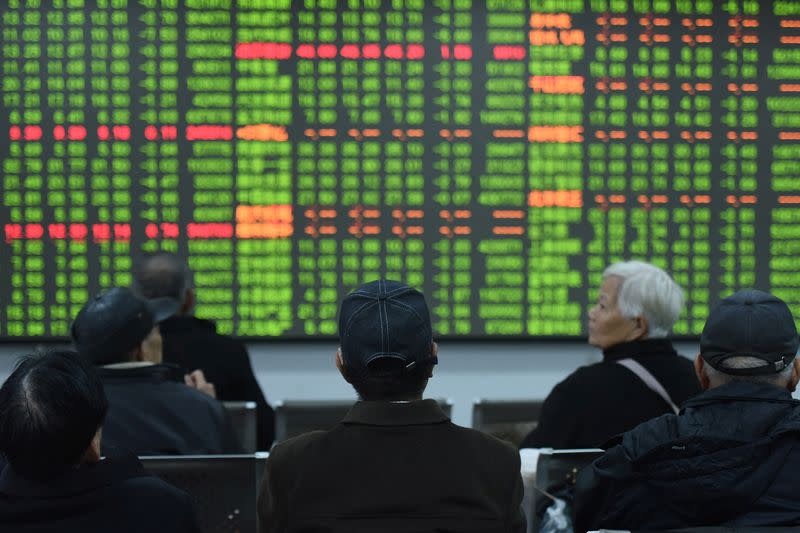Chinese stocks rebounded on Tuesday after a report that authorities are seeking to mobilize a substantial sum from state entities – allegedly 2 trillion yuan ($279 billion) – for a fund to boost local markets.
The economic slowdown and dismal start to the year by the country’s major markets, which have sunk to multi-year lows, has become a concern for the country’s top leaders.
The State Council, as China’s cabinet is called, was briefed on the state of the country’s capital markets, according to a report by Xinhua state news agency.
And Premier Li Qiang has ordered authorities to find ways to attract long-term investors to the country’s capital markets, after stock indices sank to fresh lows in Shanghai, Shenzhen and Hong Kong, according to the South China Morning Post.
ALSO SEE: Tencent Leads China Shares up as Gaming Body Drops New Rules
The authorities have over the past five to six months enacted multiple measures to support markets which have slowed, but not stopped, the sell-off.
The China Securities Regulatory Commission (CSRC) did not respond to a request for a comment. But the feedback from analysts and investors has been clear and helps explain why investors have and are turning their backs on the country’s markets.
‘Throwing cups of water on a fire’
Derrick Irwin, an Emerging Markets portfolio manager with Allspring, said: “Investors looking out into 2024 and anyone who would hope that the Chinese government would come riding to the rescue is re-evaluating that right now.
“Until there is a bigger crisis, the Chinese government may just continue to kind of throw cups of water on the fire instead of something big that they probably need to do.”
Marko Papic, chief strategist at Clocktower Group, said: “Our argument is that at the financial work conference, which happened last week, policymakers came away with a renewed focus on financial sector regulation and the ongoing anti-corruption campaign, refocusing it towards the financial sector.
“From a Chinese investor’s perspective, the reason that this matters is twofold: First of all, it’s another major sector that’s going to be inspected with a heavy-handed regulatory approach. And the second issue is that you need the financial sector when the private sector is de-leveraging. You need banks to want to lend … more so than any other time.
“As a Chinese investor you (also) sit there and you’re like, wait a minute, if (the central bank is) not willing to cut 25 basis points we’re really far from any sort of a bazooka … they’re not even willing to fire a water pistol.”
Pierre Hoebrechts, head of macro research at East Eagle Asset Management, said: “We have been conservatively positioned since last March on the premise that the Chinese household would be reluctant to invest … in light of their high savings rate and the real estate market adjustment.
“As fundamental news has not been strong enough and the market is finally waking up to the fact that the government will manage the economy for the long term as stated by Premier Li Qiang at Davos and not focus on short-term market movements, investors’ interest has disappeared.”
Norman Villamin, chief strategist at UBP, said: “We sold China in October. We had hoped that there was going to be more cyclical stimulus coming through. When it became clear that wasn’t going to happen, the conclusion was that China was ready to embark on the restructuring of its property sector which meant that it would be kind of a fairly prolonged process.
“Over the last 30 years, the story of China has been China is growing fast, China is becoming the manufacturing centre of the world – so you should just own China because the economy is doing very well. Now, the story of China is there are some sectors that are going to have a very hard time. So you need to be more selective in terms of the companies that you buy.”
- Reuters with additional input and editing by Jim Pollard
ALSO SEE:
China Banks Moves to Stabilize Yuan as Stock Markets Slide
Mortgage Delinquencies in China Soared by 43% in 2023
Chinese Economy is in Trouble, US Nobel Laureate Says – NYT
China Seen Halving Stamp Duty on Stock Trading to Boost Markets
























